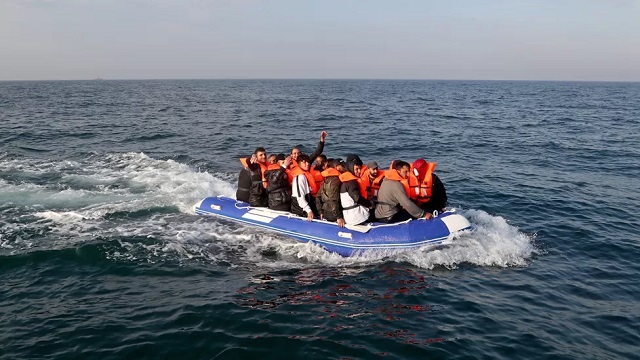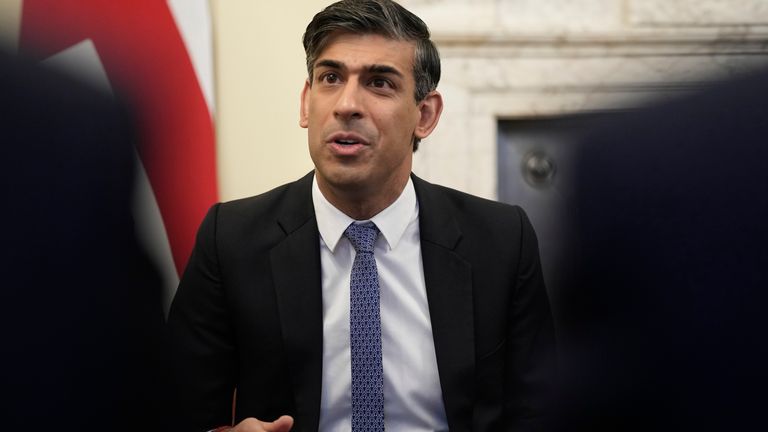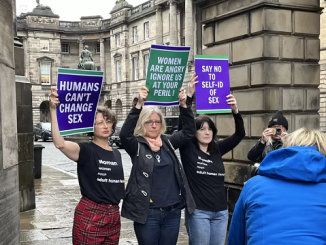
The government’s Rwanda plan, devised to tackle illegal migration, has been dismissed by the Supreme Court, ending over 18 months of legal battles in the UK.
Lord Reed announced the “unanimous” judgment from the court’s justices on Wednesday, saying those sent to the country would be at “real risk” of being returned home, whether their grounds to claim asylum were justified or not – breaching international law.
Prime Minister Rishi Sunak said the judgment was “not the outcome we wanted”, but insisted the government remained “completely committed to stopping the boats” and would now “consider next steps”.
Downing Street also confirmed Mr Sunak would hold a press conference at 4.45pm over the issue – following a statement in the Commons from the new Home Secretary James Cleverly.
Charities celebrated the decision as “a victory for humanity”, while opposition parties attacked the government for wasting time and money on the “immoral, unworkable” policy.
The Rwanda scheme, which would see those arriving in the UK illegally – including via small boats – deported to the east African nation, was first put forward by Boris Johnson in April 2022.
Successive prime ministers all claimed the policy would act as a deterrent to those seeking to cross the Channel, as well as help to break up people-smuggling gangs.
But critics consistently called the proposal “inhumane”, and the plan was dubbed a “gimmick” by political opponents.
An injunction from the European Court of Human Rights stopped the first flight to Rwanda from taking off in June last year and the scheme has been embroiled in litigation ever since, meaning no asylum seekers have yet been deported to the country.
Explainer: Everything you need to know about the Rwanda plan
Delivering the Supreme Court’s ruling on Wednesday, Lord Reed said there were “serious and systematic defects in Rwanda’s procedures and institutions for processing asylum claims”.
Those issues led to “concerns about the asylum process itself, such as the lack of legal representation, the risk that judges and lawyers will not act independently of the government in politically sensitive cases, and a completely untested right of appeal to the High Court”.
The justice also said there was a “surprisingly high rate of rejection of asylum claims from certain countries in known conflict zones”, including Syria and Yemen, which many people coming to the UK may originate from.
He pointed to an “apparent inadequacy of the Rwandan government’s understanding of the requirements of the Refugee Convention”, specifically that under the United Nations agreement, asylum seekers had to be protected from “refoulement” – being sent back to their country of origin – and there was evidence the country had failed to comply with this when it signed a similar deal with Israel.
“The Supreme Court accepts that the Rwandan government entered into the [deal with the UK] in good faith, that it has incentives to ensure that it is adhered to, and that monitoring arrangements provide a further safeguard,” Lord Reed said.
“Nevertheless, the evidence shows that there are substantial grounds for believing that there is a real risk that asylum claims will not be determined properly, and that asylum seekers will therefore be at risk of being returned directly or indirectly to their country of origin.
“The changes and capacity-building needed to eliminate that risk may be delivered in the future, but they were not shown to be in place when the lawfulness of the Rwanda policy had to be considered in these proceedings.”
Lord Reed underlined that the Supreme Court’s decision was a “legal question” based on international law – including the European Convention on Human Rights and various UN treaties – and the court was “not concerned with the political debate” about the scheme.
Mr Sunak said the ruling was “not the outcome we wanted”, but added: “We have spent the last few months planning for all eventualities and we remain completely committed to stopping the boats.”
The prime minister added: “Crucially, the Supreme Court – like the Court of Appeal and the High Court before it – has confirmed that the principle of sending illegal migrants to a safe third country for processing is lawful. This confirms the government’s clear view from the outset.
“Illegal migration destroys lives and costs British taxpayers millions of pounds a year. We need to end it and we will do whatever it takes to do so.
“Because when people know that if they come here illegally, they won’t get to stay then they will stop coming altogether, and we will stop the boats.”
Rwandan government spokesperson Yolande Makolo accepted it was “ultimately a decision for the UK’s judicial system”, but added: “We do take issue with the ruling that Rwanda is not a safe third country for asylum seekers and refugees, in terms of refoulement.
“Rwanda is committed to its international obligations, and we have been recognized by the UNHCR and other international institutions for our exemplary treatment of refugees.”
But the CEO of the Refugee Council, Enver Solomon, called it “a victory for the rights of men, women and children who simply want to be safe”.
He added: “The plan goes against who we are as a country that stands up for those less fortunate than us and for the values of compassion, fairness and humanity.
“The government should be focusing on creating a functioning asylum system that allows people who seek safety in the UK a fair hearing on our soil and provides safe routes so they don’t have to take dangerous journeys.”
Labour called it a “damning” judgement, with shadow home secretary Yvette Cooper saying the prime minister’s “flagship policy has completely failed”.
She added: “[It] exposes Rishi Sunak’s failure to get any grip or have any serious plan to tackle dangerous boat crossings, which are undermining border security and putting lives at risk.
“Labour argued from the start this plan is unworkable and extortionately expensive, now it has been confirmed as unlawful because the government failed to ensure they had a robust and workable policy.
“Ministers knew about the weaknesses in this scheme from the start and yet they insisted on making it their flagship policy.”
The ruling is now likely to reignite a row in the Conservatives over the UK’s future as a signatory of international human rights agreements – something the now ex-home secretary Suella Braverman has railed against.
MPs on the right of the party have been calling on the UK to exit or attempt to work around the European Human Rights Convention (EHRC), arguing the final say on government policy should be made in the British parliament rather than abroad.
One faction, called the New Conservatives, have been meeting this morning to discuss their next steps.
In her blistering letter to Mr Sunak after she was sacked earlier this week, Ms Braverman pre-emptively pinned the blame on the prime minister for the Rwanda plan falling in the courts, accusing him of not having a “plan B” to push forward.
However, many in the party believe it is right to remain part of the agreements that protect human rights, standing alongside international allies.
Source: ![]() news.sky.com
news.sky.com







Be the first to comment